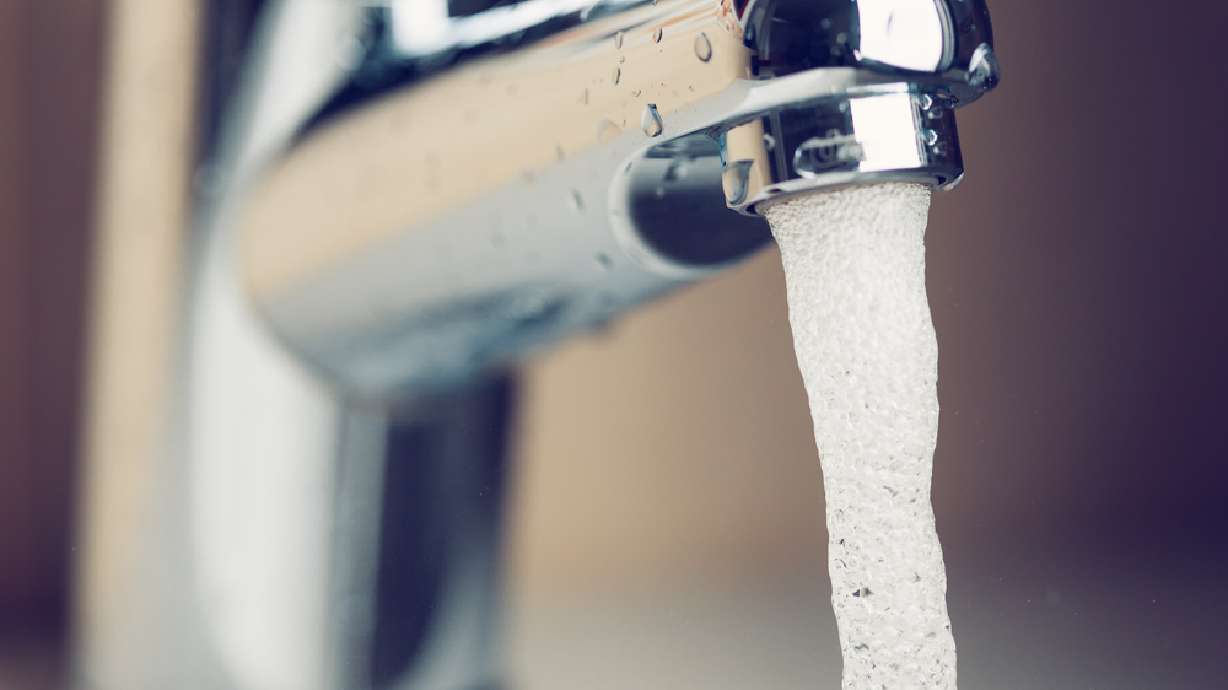Estimated read time: 3-4 minutes
This archived news story is available only for your personal, non-commercial use. Information in the story may be outdated or superseded by additional information. Reading or replaying the story in its archived form does not constitute a republication of the story.
SALT LAKE CITY — The State Records Committee determined Thursday that a city's water use data should not be kept secret.
The committee sided with a request from the Utah Rivers Council to see water-use data compiled by the Division of Water Resources.
"For over 20 years, the division has claimed that the facts indicate that Utah's municipal population is running out of water," said Zach Frankel of the Utah Rivers Council. "We are here because we seek to know how much water Utahns are using."
The group went before the records committee after the Utah Division of Water Resources refused to provide a report showing water use in Utah's cities and towns, saying it was a draft with incomplete information, and thus exempt from public viewing.
Frankel called foul after the division apparently used some of the "draft" data in a presentation made to the 2017 Legislature.
Frankel says misperceptions about Utah's water use are being used to justify large-scale proposals like the Lake Powell pipeline and Bear River Development Project.
After finding discrepancies between the data reported by local water suppliers and the Division of Water Resources, Frankel alleged that the division's data has been "manipulated" and "massaged" and he requested to see how the division processed its data, allowing numbers to change, in some cases by as much as 1,200 percent.
"We start with the data that is on the Division of Water Right's website," Todd Adams, deputy director for the Utah Division of Water Resources, said. "Sometimes individual entities will put their data in, and they will put the wrong units in."
Related
Adams said some data is corrected when the division double-checks the numbers reported by local water suppliers.
"Sometimes it is over the phone, sometimes it is in writing, and we also ask them to resubmit that with the Division of Water Rights. We cannot make them do that, but we ask them to," Adams said.
Assistant attorney general Norman Johnson defended the division's reporting, and said the issue for the Utah Rivers Council is with data that is incorrectly reported from the local water suppliers, rather than the division.
"It is a call to the water suppliers to do a better job of providing their data," Johnson said.
Johnson told the committee that considering the incidences of errors in the reporting, it would not be a good idea to release the report until the information can be verified by a third party.
It is a call to the water suppliers to do a better job of providing their data.
–Norman Johnson, assistant A.G.
But the committee chairman was skeptical.
"They could not have created the draft report unless they perceived the numbers in their database to be finalized," Records Committee Chairman David Fleming said.
He noted that while drafts can be protected from public scrutiny, the data that was used to make the draft was comprised of information that should be available to the public.
The committee voted 5-0 in favor of granting the Utah Rivers Council's appeal for water-use information.
"To get the data wrong is not an accident. The Division of Water Resource's staff are competent and intelligent people, they know what they are doing," Frankel said after the hearing. "To misrepresent a data set this badly can only be done because of the intention to exaggerate future water use."
To misrepresent a data set this badly can only be done because of the intention to exaggerate future water use.
–Zach Frankel, Utah Rivers Council
Frankel said he suspects the Division of Water Resources could be altering their reporting and that the local water suppliers could also be reporting inaccurately, but he said that without the data from the division, they could not know the exact source or nature of the discrepancy
No decision has been made on whether the division will appeal.










